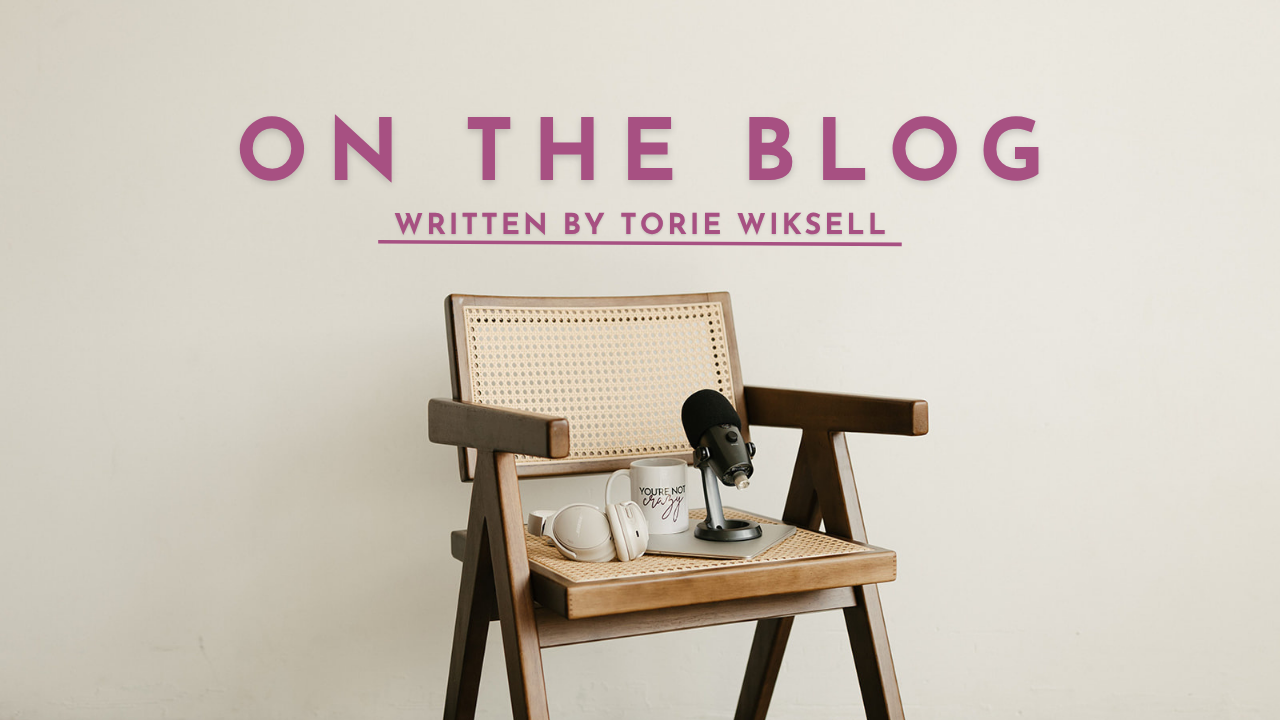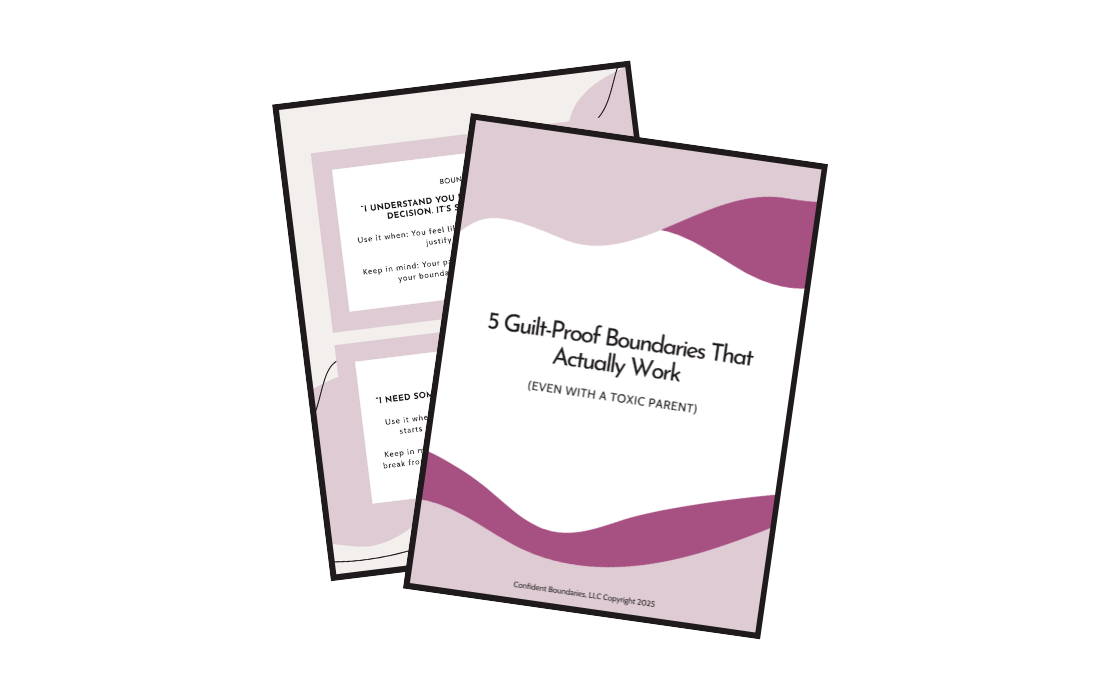
Growing Up With a Narcissistic Parent: How It Impacts You as an Adult
Let’s be real—parenting is hard, even under the best of circumstances. But when you’re raised by a parent with narcissistic personality disorder (or someone with strong narcissistic traits), “hard” doesn’t even begin to cover it.
Emotionally healthy parenting requires things like accountability, empathy, and repair after mistakes.
Narcissistic parenting? That’s an entirely different story.
If you’re an adult child of a narcissistic parent, you’ve likely spent most of your life feeling unseen, unworthy, and like love was something you had to earn. You were probably made to feel like you were too much or never enough.
Becoming an adult doesn't magically erase or heal that pain and trauma. And you may have found that those dynamics still show up in your relationships, your self-worth, and your ability to trust your own instincts.
Let’s break this down—because understanding what actually happened to you is the first step in learning how to set boundaries with a toxic parent and start healing from the dysfunctional family system you were raised in.
What Is Narcissistic Personality Disorder, Really?
Narcissistic Personality Disorder (NPD) is a mental health condition marked by:
-
An inflated sense of self-importance
-
A deep need for admiration
-
A profound lack of empathy
People with NPD often believe they’re superior to others and will go to great lengths—often at the expense of their own children—to protect that self-image.
They use manipulation, guilt, shame, and even emotional blackmail to get their needs met. And unfortunately, when that person is your parent, you become the easiest target.
(Quick side note: Only a qualified mental health professional can diagnose NPD. But if you’ve experienced a lifetime of emotional manipulation, invalidation, or conditional love—it can be quite healing to have that pain and trauma validated and by able to put words to it, regardless of whether or not an official diagnosis has been made)
What It’s Like to Grow Up With a Narcissistic Parent
If you grew up in a dysfunctional family where everything revolved around your parent’s moods, image, or needs—y our narcissistic parent likely:
-
Demanded perfection
-
Punished you (overtly or covertly) for having needs
-
Made you feel like their love had to be earned
-
Used guilt or withdrawal to control you
-
Projected their issues onto you
Sound familiar?
Children of narcissistic parents often become adults who constantly ask:
-
Am I the problem?
-
Why do I feel so disconnected from my emotions?
-
Why is it so hard to make decisions or trust myself?
-
Why do I feel guilty every time I try to set boundaries with my parent?
Spoiler alert: you’re not the problem. You were raised in an environment that trained you to question your needs and ignore your emotional pain.
How It Shows Up in Adulthood
If you were raised by a narcissistic parent, it’s likely you:
-
Struggle with self-doubt, around both big and small decisions
-
Feel like you don’t even know what you want or feel sometimes
-
Have a tendency to people-please or seek external validation
-
Are incredibly hard on yourself (because perfection was the only way to feel safe as a kid)
-
Feel deep guilt or anxiety when you even think about setting boundaries with your parent
You may also struggle with the idea of going no-contact because the love you were shown—although conditional—still felt like something. And our brains, understandably, want to hold onto anything that resembles connection, even when it comes at a huge emotional cost.
But here’s the thing: conditional love isn’t real love.
It’s manipulation.
And recognizing that is the beginning of healing.
Why It’s So Hard to Set Boundaries With a Narcissistic Parent
Let’s talk about why setting boundaries with a toxic parent feels so impossible—even when you know it’s what you need.
Because the moment you pull back, you’re met with:
-
Guilt
-
Rage
-
Silent treatment
-
“After everything I’ve done for you…”
They will twist your boundary into a personal attack. They will accuse you of being ungrateful, selfish, or brainwashed.
And it’s not because you’re doing something wrong—it’s because they don't have the ability or desire to look at life through your lens. They view the world through the lens of their needs matter most and there is no room for a difference of opinion.
But let me be crystal clear:
You are not wrong for protecting your peace.
You are not selfish for saying “this relationship is hurting me.”
You are not ungrateful for needing space from someone who continues to cross your boundaries.
Conditional Love Is Not the Same as Real Love
This part is painful:
Conditional love from a parent can feel like love—because sometimes, it comes with warmth or approval or praise. But those moments are temporary. They're based on performance. They vanish the moment you stop meeting their expectations.
That’s not love. That’s control.
And the longer you chase it, the longer you stay stuck in the cycle of trying to be “good enough” for someone who’s incapable of truly seeing you.
Recognizing this dynamic is what helps you start detaching emotionally and setting boundaries that are about protecting you, not changing them.
How to Start Healing (Even If You’re Still in Contact)
Healing from the trauma of emotionally immature parents is possible. But it doesn’t start with them—it starts with you.
Here’s what helps:
-
Working with a therapist or coach who specializes in narcissistic family dynamics
-
Finding community with people who understand what you’re going through
-
Learning how to set realistic boundaries and stick to them
-
Exploring whether low-contact or no-contact is right for you
-
Reclaiming your voice, your needs, and your emotional clarity
This is exactly why I created the Confident Boundaries Membership—to give adult children of parents with suspected borderline or narcissistic personality disorder a safe, supportive space to learn, connect, and heal.
You Don’t Have to Keep Playing Along
As an adult, you have choices now.
You don’t have to keep pretending everything’s fine.
You don’t have to keep sacrificing your mental health just to maintain the illusion of “family.”
Setting boundaries with a toxic parent isn’t easy. Neither is going no-contact. But if the status quo is making you miserable, that’s a sign that something has to change.
You get to choose what that change looks like.
And you don’t have to do it alone.
You’re Not Crazy.
But you might have been gaslit by your parents.
Learn how to recognize the signs—and start rebuilding trust in yourself.
I hate SPAM. I will never sell your information, for any reason.



